Putting together a party or really any event takes a lot of time and effort. Plans have to be made, reservations and arrangements set up, people informed and, often, really money put down to book things. So learning that a bunch of potential guests are suddenly flaking can be an organizer’s nightmare.
A woman asked if she was overreacting when she called out her so-called friends after they canceled on her birthday last minute. We reached out to the woman who shared the post via private message and will update the article when she gets back to us.
Last minute cancellations are the worst

Image credits: halayalex (not the actual photo)
So one woman was understandably annoyed when her friends texted her that they couldn’t make it to her birthday

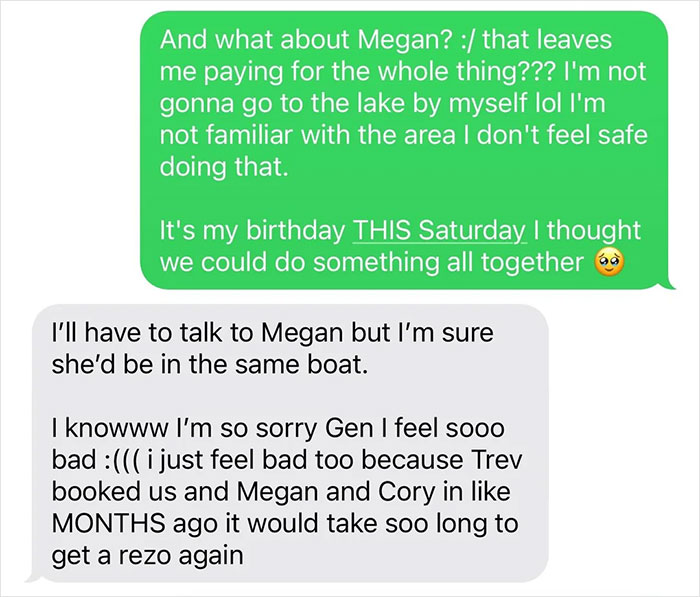
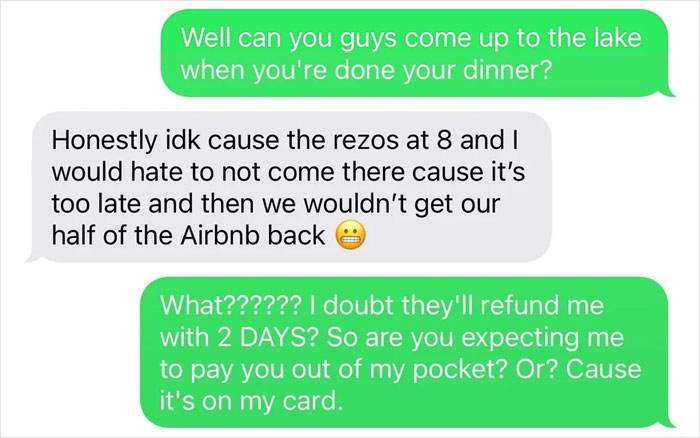

Image credits: DifferentTruck4615

Image credits: varyapigu (not the actual photo)

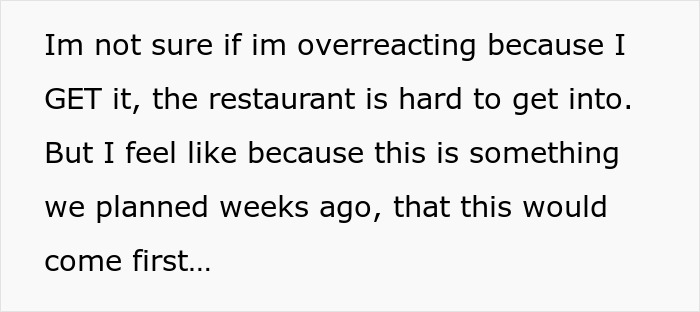

Image credits: DifferentTruck4615
It’s important to put effort into relationships
Friendships thrive on reliability, and nothing tests that reliability more than a friend who is a serial flaker. Maybe they flake at the last minute, show up hours late, or just vanish into thin air without warning. While everyone will have the occasional one-off crisis or calendaring disaster from time to time, pathological flakiness is enough to leave you feeling disrespected and not appreciated. Eventually, it conveys the message that your time and effort are not given equal precedence as theirs. Dealing with this type of dynamic demands the balance of patience, communication, and boundaries.
First is to become aware of how it affects you. When the other person repeatedly backs out, it’s not just about missing dinner or a deserted Saturday afternoon, it’s about the disappointment and frustration that accumulate. It also creates a feeling of disproportion, where one person puts effort into planning and attending and the other makes the friendship optional. Identifying that feeling to yourself is what matters most, as it helps you realize why the behavior bothers you and keeps you from downplaying it as “not a big deal.”
Once you’ve identified the problem, communication is paramount. Don’t let resentment build up in silence until it explodes. Rather, explain to them straightforwardly how their actions affect you. Stating quietly that last-minute cancellations give you the impression that your time isn’t worth anything is generally more powerful than complaining about how flaky they are. You don’t want to attack, but to highlight the pattern and open their eyes to it. Sometimes others have no conception of how flaky they are until they hear it.

Image credits: Pixabay (not the actual photo)
Not all friendships are made equal
Boundaries are where the change actually happens. If you have a friend who consistently cancels plans, consider altering your planning. That might mean selecting lower-work effort activities that won’t leave you in the lurch if they fail to attend, or agreeing only to do things when you’re comfortable with the possibility that they won’t happen. In extreme cases, that might mean saying no when they try to make plans, especially if you have previous experience they probably won’t follow through. Boundaries are not a punishment, they’re a necessary part of self-care. They indicate that your time and energy are valuable and you won’t continue to invest them in an exchange that frustrates you.
It’s also worth considering whether the friendship is mutual otherwise. If a person is not reliable but shows you care in other areas by being committed in communication, assistive, or effortful elsewhere, you can decide the friendship remains rewarding. If unreliability exists in a broader framework of disregard or self-involvement, it could be a sign to evaluate the space they occupy in your life.
At its simplest, dealing with flaky friends is about not tolerating letdowns as part of your friendship. Friendships ought to be a source of trust, joy, and comfort, not ongoing frustration or disappointments. By being honest about how the behavior is affecting you and enforcing boundaries that honor your time, you’re providing the friendship the chance to improve or reveal its true boundaries. Either way, you’re continuing on with a sense of self-respect intact.

Image credits: Afta Putta Gunawan (not the actual photo)
She answered some comments later



People thought her friends were terrible

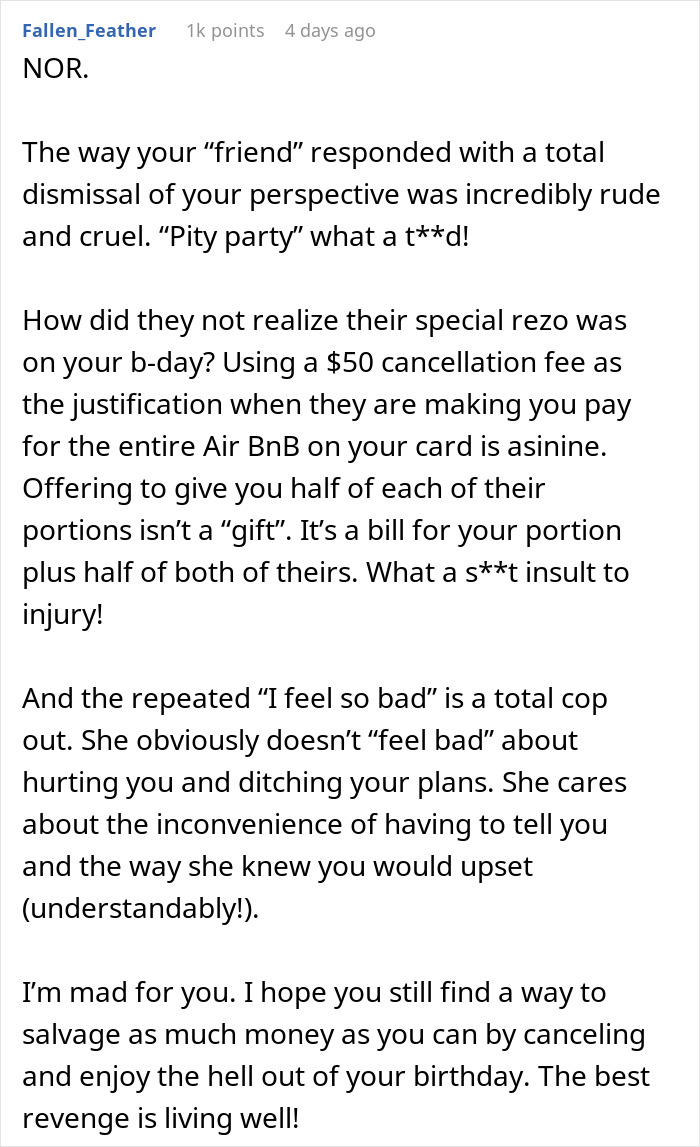


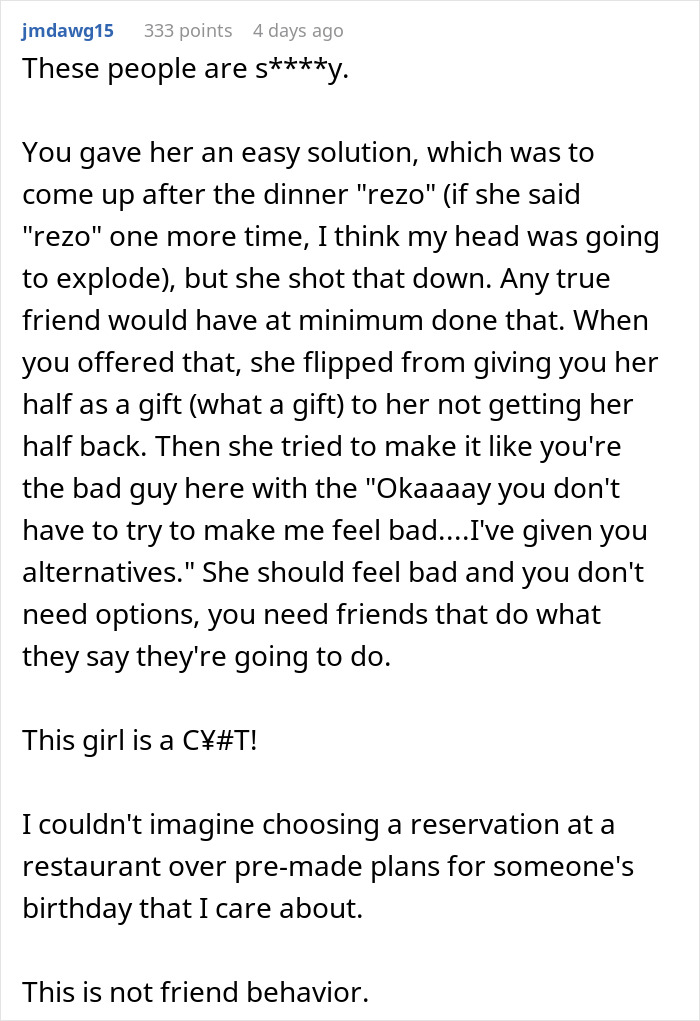






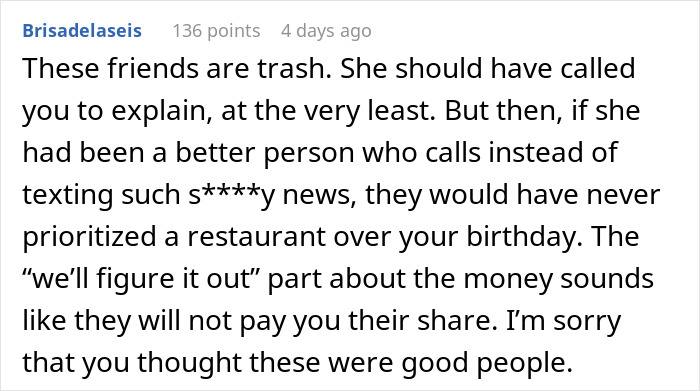
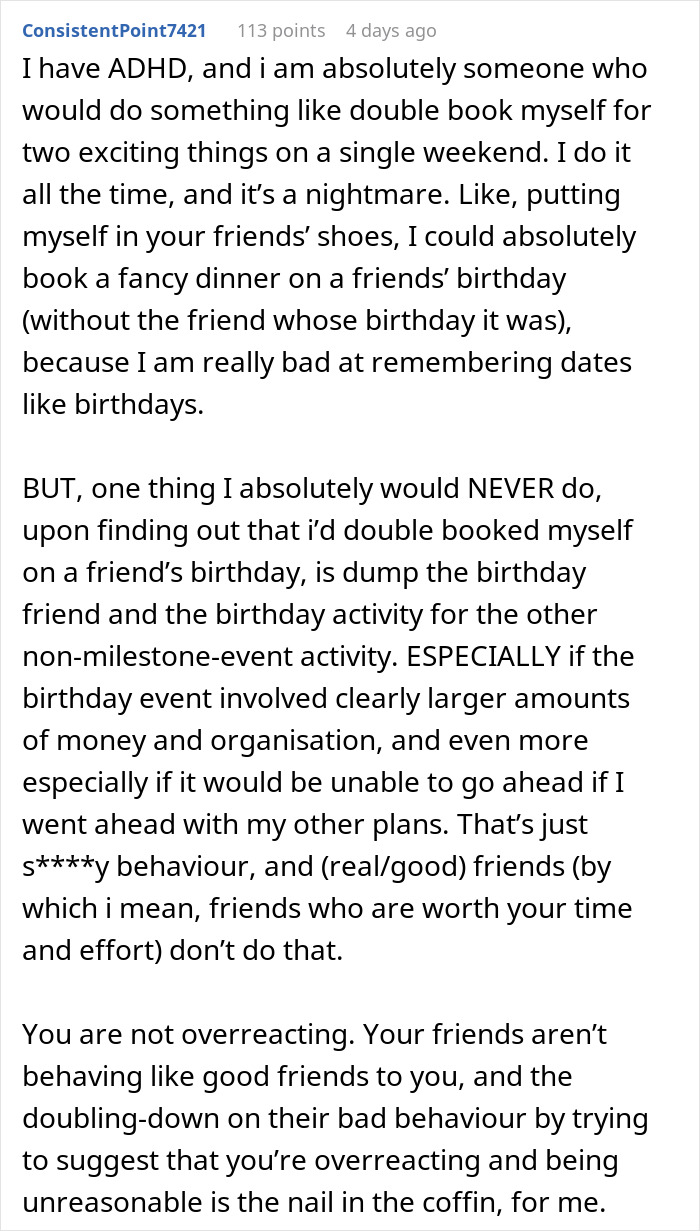


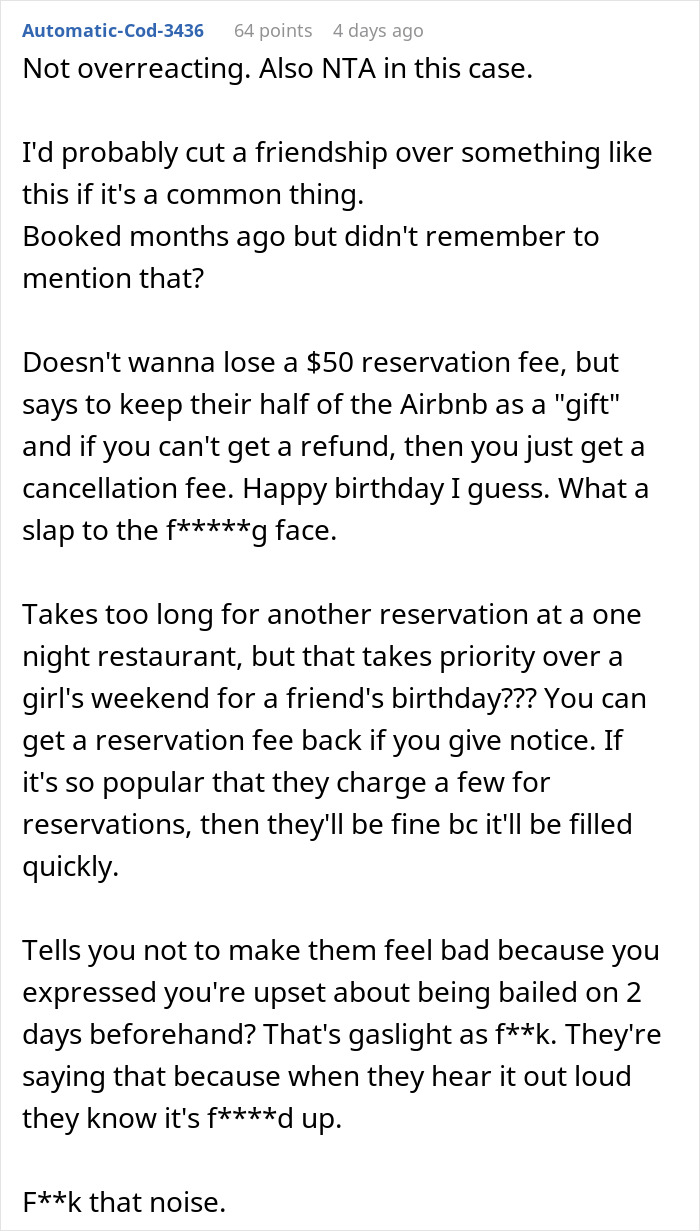

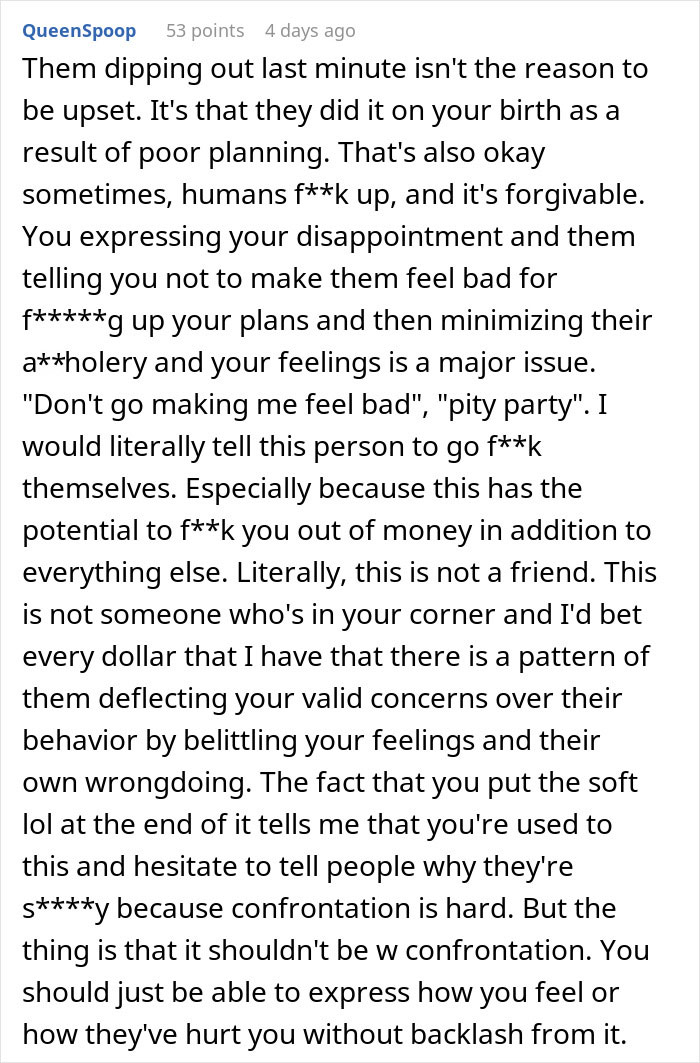

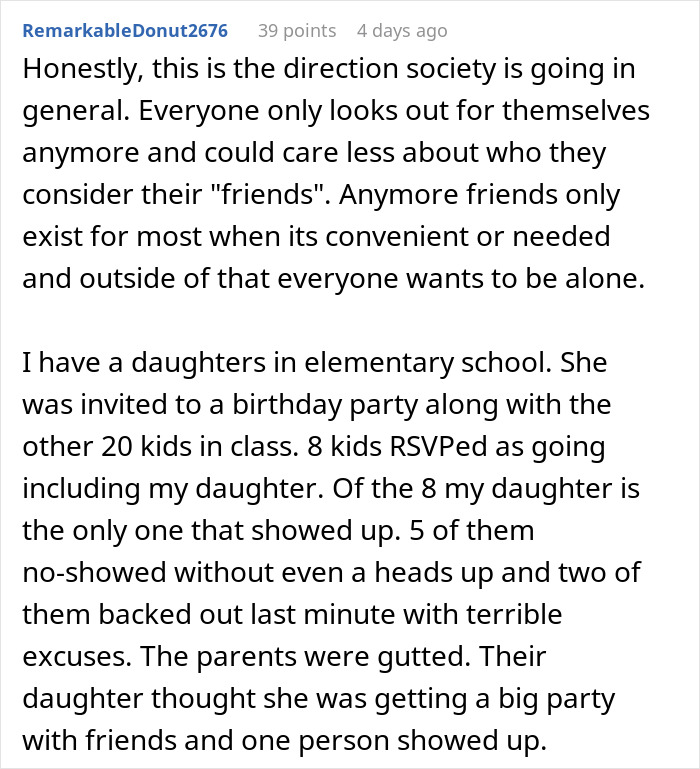

 Follow Us
Follow Us





